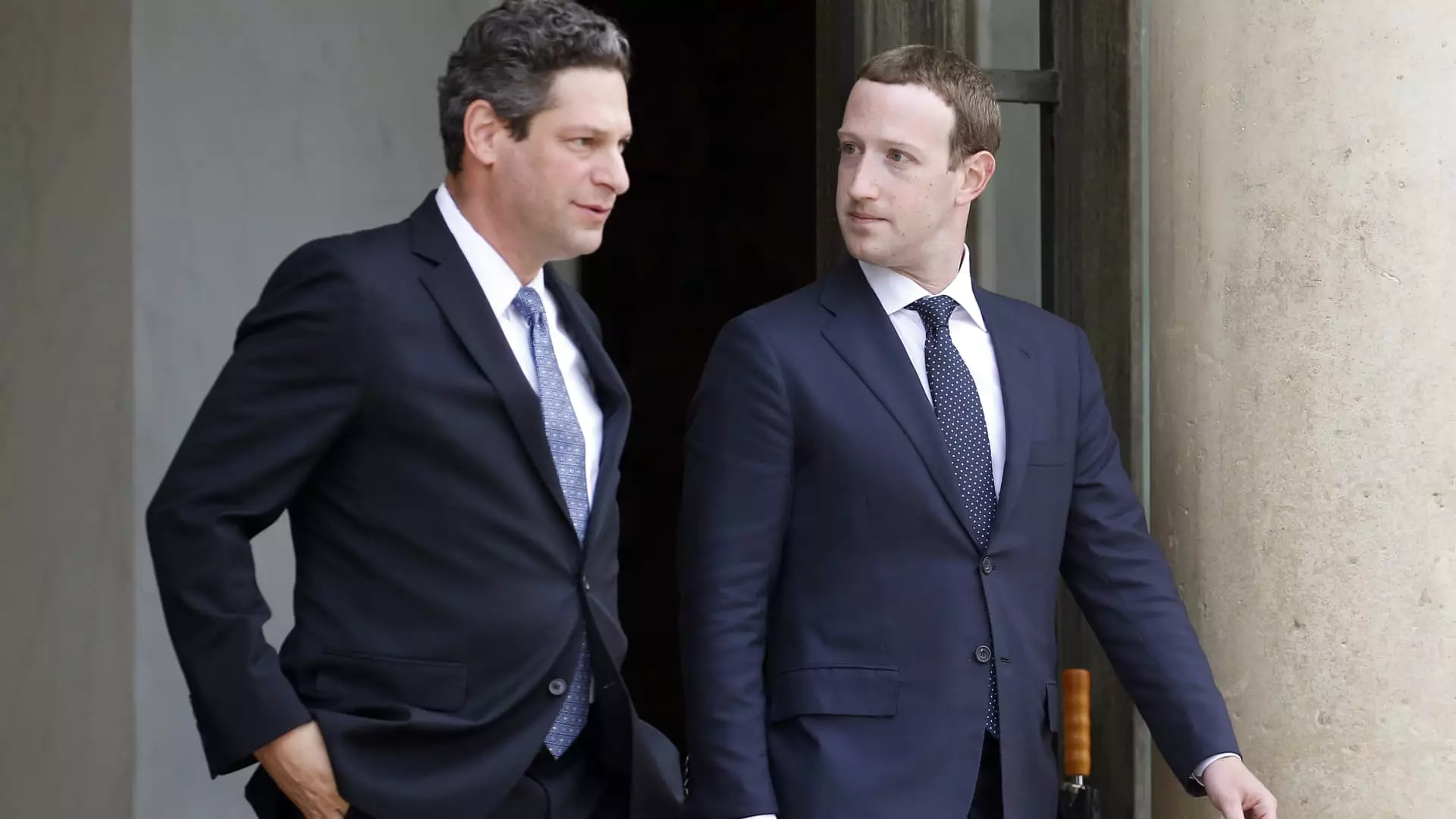In a surprising yet strategically significant move, Meta (formerly Facebook) has announced a leadership change in its Global Affairs department. Nick Clegg, who has held the position of President of Global Affairs since 2018, is stepping down from his role to be succeeded by Joel Kaplan, the company’s current policy vice president. This transition, occurring mere weeks ahead of the impending inauguration of President-elect Donald Trump, signals a broader trend among technology companies positioning themselves for new political dynamics in the United States.
A Shift in Strategy Amid Political Realignment
The timing of this leadership change is crucial; it highlights how Meta, along with other tech giants, is strategically preparing for an administration that has previously exhibited strong regulatory tendencies towards the industry. Clegg, a prominent figure in British politics as a former Deputy Prime Minister, has been instrumental in navigating the complex regulatory landscape that Meta has faced, especially concerning user data privacy and preventing misinformation. His departure comes at a time when Meta is expected to face increased scrutiny in the face of changing political tides.
Clegg’s resignation comes enclosed in a message shared with his staff where he expresses optimism about the transition period, stating he looks forward to a phased handover of responsibilities. He emphasizes his commitment to representing Meta at international gatherings before officially stepping down, a testament to the ongoing importance of global engagement in a tech environment that is rife with challenges.
Joel Kaplan, poised to take over as the new Chief Global Affairs Officer, brings a different set of experiences to the table. His history as a Republican staffer and deep engagement with political circles—having previously worked under President George W. Bush—catapults him into a position that may offer Meta new avenues for influence during a time of political transformation. Kaplan’s prior involvement in high-profile events, including attending the Supreme Court confirmation of Brett Kavanaugh, has already raised eyebrows. It hints at the complexities that lie ahead for Meta in navigating relationships with both sides of the aisle.
As Kaplan steps into this position, he will collaborate closely with David Ginsburg, the Vice President of Global Communications and Public Affairs, as well as former Federal Communications Commission chairman Kevin Martin, who will take over Kaplan’s previous responsibilities. This new team structure indicates an intention to foster a more unified approach to policy advocacy and communication—a vital necessity as the company faces regulatory scrutiny.
Nick Clegg’s legacy at Meta includes navigating significant crises, such as the Cambridge Analytica scandal, which underlined the company’s issues with user data and user trust. Clegg’s stewardship was marked by attempts to rebuild not just Meta’s reputation, but also reconcile its relationship with governments across the globe. His insights into the societal pressures facing big tech have been invaluable during a period of unprecedented scrutiny from regulators and the public alike.
Mark Zuckerberg, Meta’s CEO, commended Clegg’s contributions in a statement, acknowledging the strong foundation he built during his tenure. As the tech landscape evolves, the question arises: will Kaplan’s background and approach provide Meta with the necessary tools to pivot effectively in this new era?
As Meta embarks on this new chapter with Joel Kaplan at the helm of Global Affairs, the unfolding dynamics in Washington present both challenges and opportunities. The company must brace itself for a political atmosphere characterized by heightened regulatory scrutiny and public skepticism. Kaplan’s role will be to engage with policymakers tactfully while positioning Meta as a responsible industry leader. This transition is not merely a reshuffling of leadership; it represents a critical moment for Meta as it seeks to adapt to an evolving political landscape, ensuring both its survival and relevance in the years to come. As the global and technological arena continues to evolve, so too will Meta’s strategies, and the leadership it adopts will be crucial in determining its future.

